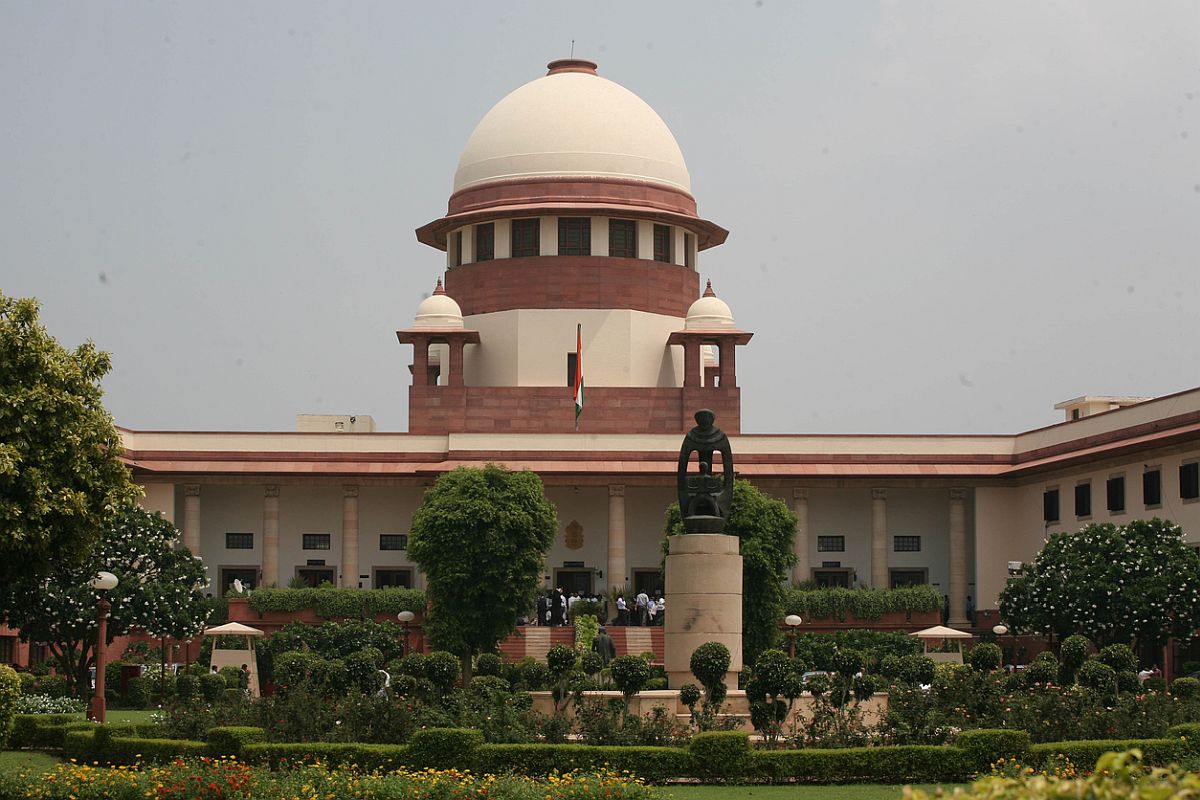No public money will be spent on glorifying govt & CM: Sachdeva
Sachdeva claimed that the BJP government in Delhi did not spend a single penny from the public treasury for the oath-taking ceremony held on Thursday.
A five-judge Constitution bench of Justices DY Chandrachud, MR Shah, Krishna Murari, Hima Kohli and PS Narasimha asked the parties to complete the compilation of papers.

Indian Supreme court (IANS file photo)
The Supreme Court’s Constitution bench to hear from November 9 the plea of the Arvind Kejriwal-led Delhi government on the contentious issue of who should control administrative services in the city over the transfers and postings of officers in the national capital.
A five-judge Constitution bench of Justices DY Chandrachud, MR Shah, Krishna Murari, Hima Kohli and PS Narasimha asked the parties to complete the compilation of papers in the case meanwhile and it will start day-to-day hearing from November 9. “List it on November 9, at 10:30 am. The hearing shall proceed from day-to-day,” said the bench in its order.
Advertisement
Earlier, the apex court bench said that this will be a complete green bench and there will be no papers in this matter.
Advertisement
“Don’t circulate any paper compilations. We want this bench to be a green bench,” Justice Chandrachud had said.
The top court had said that to make counsels acquainted with technology in the legal proceedings, training would be conducted over the weekend.
The bench has to decide the legal issue concerning the scope of legislative and executive powers of the Centre and Delhi government over control of services in the national capital.
The case was slated to be heard by a Constitution bench after a three-judge bench had in May this year decided to send it to a larger bench on a request by the Central government.
On February 14, 2019, a two-judge Bench of the top court had delivered a split verdict on the question of powers of the GNCTD and Union government over services and referred the matter to a three-judge Bench.
While Justice Ashok Bhushan had ruled the Delhi government has no power at all over administrative services. Justice AK Sikri, however, had said the transfer or posting of officers in top echelons of the bureaucracy (joint director and above) can only be done by the Central government and the view of the lieutenant governor would prevail in case of a difference of opinion for matters relating to other bureaucrats.
The two-judge bench which was hearing pleas on six matters pertaining to a long-running conflict between the Centre and the Delhi government had given a unanimous order on the remaining five issues except for the control over services.
Governance of the national capital has witnessed a power struggle between the Centre and the Delhi government since the Aam Aadmi Party (AAP) came to power in 2014.
Prior to February 2019 judgement, a five-judge constitution bench of the Supreme Court had on July 4, 2018, laid down the broad parameters for governance of the national capital. In the landmark verdict, it had unanimously held that Delhi cannot be accorded the status of a state, but clipped the powers of the LG saying he has no “independent decision-making power” and has to act on the aid and advice of the elected government.
It had restricted the jurisdiction of the LG to matters pertaining to land, police and public order and on all other matters, it held that the LG would have to act on the aid and advice of the council of ministers.
Advertisement